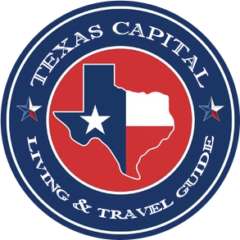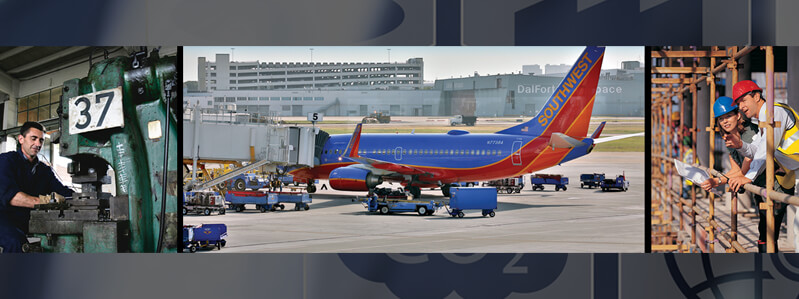Have you heard the phrase “Everything’s bigger in Texas”? That includes the Dallas–Fort Worth metropolitan area, whose combined territory is larger than several American Union states.
This region is a hub of innovation with a wealth of resources, making it an ideal business climate. As the fourth largest metro in the nation, companies looking for a welcoming and profitable place to do business are discovering numerous benefits here.
The central location of the region allows it to function as a logistics center, giving companies access to important markets. Likewise, the area stands out in air and cargo transport operations thanks to the third most demanded airport, DFW International Airport.
Getting around the region is easy thanks to a developed network of highways connecting work centers to new communities. Good news for employers, this allows them to have a broader base of employees. And for workers, this allows them to choose from a variety of affordable communities to live in. In addition, the average crossing time is 27.3 minutes.
While most of the population growth has occurred in suburban cities, the urban core continues to show opportunity due to the diversity of communities. The total population that was registered in 2013 was 6,810,913 and in 2040, it is expected to grow to 10.5 million inhabitants, employing more than 6.6 million.
There is no better region to operate a national or international company. The business climate of Texas, combined with the attributes that Dallas currently wields, make you find a home here.
DFW: Financial Center
Contents
Definitely, the Dallas-Fort Worth region is one of the most important financial centers in the United States. Financial firms are spread throughout the region, but the highest concentration is in downtown Dallas and in Addison and Plano, suburbs to the north. Downtown Fort Worth also has a strong range of financial companies.
For financial operations, the region has an average annual salary of $ 66,602, higher than the national average, which is $ 63,588.
Sectors that move the economy in DFW
Dallas-Fort Worth’s economy is among the most diverse in the North American nation. Businesses in the region can move quickly thanks to the robust intermodal transportation network. Technology has helped develop a strong base of engineers and information science professionals to lead the manufacture of innovative products. And furthermore, the area has a strong professional services base, making it a magnet for business leadership.
ADVANCED SERVICES
Traditionally, these services take us to corporate ones, but they also include professional and technical services ranging from consulting firms to commercial insurers, legal and accounting services. Advanced technology and transnational operations have driven most of the growth from advanced services activities to highly specialized companies. This region has an exceptionally high number of these operations.
MANUFACTURING
In addition to being related to logistics, corporate and supply chain operations, did you know that the manufacturing industry represents almost 10% of the regional economy? Dallas-Fort Worth has more manufacturing activity than any other metropolitan area in Texas. The size and scope of operations here create an immense landscape across all sectors. The goods that are built here range from boots and textiles to bricks, steel components, plastics, and aerospace components.
LOGISTICS
Dallas-Fort Worth’s central location offers a convenient distribution center, with quick access to rail, air and ground. The region is a global inland port with two airports capable of large-scale cargo operations, Dallas-Fort Worth International and the Fort Worth Alliance.
Foreign trade zones offer tax-free or deferred payment of products made in plants dedicated to international trade. The region currently has four free zones.
Freeport Tax exemptions are tax exemptions that allow local government bodies the option of exempting personal property consisting of merchandise or minerals other than oil and natural gas.
TECHNOLOGY
Dallas ushered the nation into the new era of information technology in 1958 with the invention of the microchip at Texas Instruments. These are the same technologies that enable many of the basic activities and processes in the global economy.
TELECOMMUNICATIONS
DFW is a crucial American hub for telecommunications companies. Most of them are located along the “Telecom Corridor” that runs north of downtown Dallas through Richardson and Plano. The Corridor is one of the most important high-tech business concentrations in the United States industry, here are service providers, telecommunications equipment manufacturers, consulting companies, wireless communications companies, and optical network companies. Companies located in the region include AT&T, Fujitsu, Cisco Systems, Verizon and Samsung.
AVIATION AND AEROSPACE
The area is among the top regions in the nation for aviation and aerospace activity. DFW is home to two major airlines, American Airlines and Southwest Airlines. Both operate their main maintenance bases here, creating a solid employment base. On the aerospace side, the sector comprises more than 900 companies and has one in six jobs in North Texas. With more than 26,400 employees, Lockheed Martin Corp and Bell Helicopter Textron are the largest.

